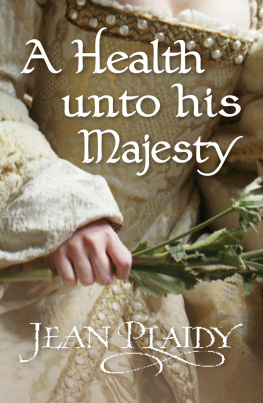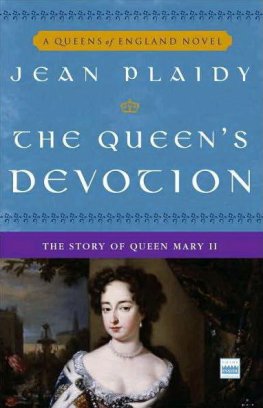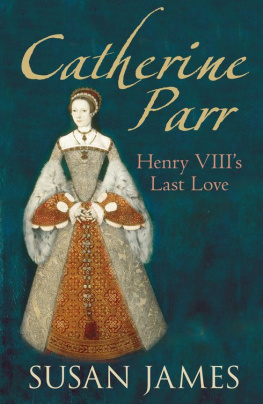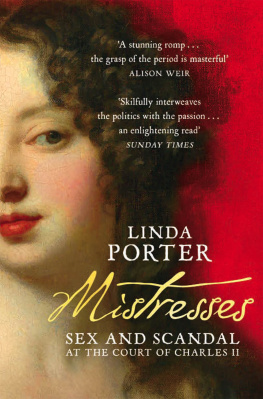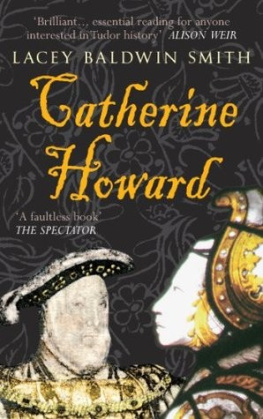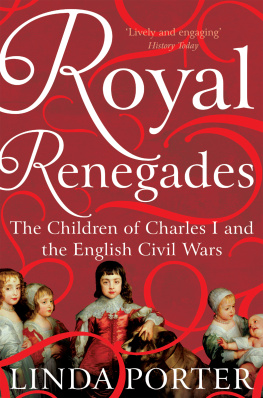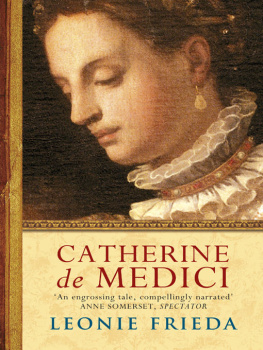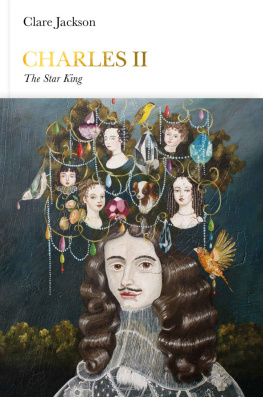Contents
About the Book
A 30-year-old Charles II is rapturously welcomed back on the throne after years in exile. Needing funds he marries the wealthy Portuguese princess, Catherine of Braganza. But this is an unsuccessful match as his unattractive princess fails to provide him with an heir and the dowry never materializes. Although Charles always treats her with the utmost kindness, Catherine has to tolerate his many mistresses, notably the promiscuous beauty, Barbara Castelmaine.
The plot unfolds against a background of Plague, the Popish Plot and the Great Fire of London where underlying religious tensions promise to cause problems for the King. When his Catholic brother, James, looks likely to succeed him, the people rise up against Catholics. Even Queen Catherine is in danger when she is accused of plotting to kill her husband.
About the Author
Jean Plaidy, one of the preeminent authors of historical fiction for most of the twentieth century, is the pen name of the prolific English author Eleanor Hibbert, also known as Victoria Holt. Jean Plaidys novels had sold more than 14 million copies worldwide by the time of her death in 1993.
Also by Jean Plaidy
THE TUDOR SAGA
Uneasy Lies the Head
Katharine, the Virgin Widow
The Shadow of the Pomegranate
The Kings Secret Matter
Murder Most Royal
St Thomass Eve
The Sixth Wife
The Thistle and the Rose
Mary, Queen of France
Lord Robert
Royal Road to Fotheringay
The Captive Queen of Scots
The Spanish Bridegroom
THE CATHERINE DE MEDICI TRILOGY
Madame Serpent
The Italian Woman
Queen Jezebel
THE STUART SAGA
The Murder in the Tower
The Wandering Prince
A Health Unto His Majesty
Here Lies Our Sovereign Lord
The Three Crowns
The Haunted Sisters
The Queens Favourites
THE FRENCH REVOLUTION SERIES
Louis the Well-Beloved
The Road to Compigne
Flaunting, Extravagant Queen
The Battle of the Queens
THE LUCREZIA BORGIA SERIES
Madonna of the Seven Hills
Light on Lucrezia
ISABELLA AND FERDINAND TRILOGY
Castile for Isabella
Spain for the Sovereigns
Daughters of Spain
THE GEORGIAN SAGA
The Princess of Celle
Queen in Waiting
Caroline the Queen
The Prince and the Quakeress
The Third George
Perditas Prince
Sweet Lass of Richmond Hill
Indiscretions of the Queen
The Regents Daughter
Goddess of the Green Room
Victoria in the Wings
THE QUEEN VICTORIA SERIES
The Captive of Kensington
The Queen and Lord M
The Queens Husband
The Widow of Windsor
THE NORMAN TRILOGY
The Bastard King
The Lion of Justice
The Passionate Enemies
THE PLANTAGENET SAGA
The Plantagenet Prelude
The Revolt of the Eaglets
The Heart of the Lion
The Prince of Darkness
The Battle of the Queens
The Queen from Provence
The Hammer of the Scots
The Follies of the King
The Vow of the Heron
Passage to Pontefract
The Star of Lancaster
Epitaph for Three Women
Red Rose of Anjou
The Sun in Splendour
QUEEN OF ENGLAND SERIES
Myself, My Enemy
Queen of this Realm: The Story of Elizabeth I
Victoria, Victorious
The Lady in the Tower
The Goldsmiths Wife
The Queens Secret
The Rose without a Thorn
OTHER TITLES
The Queen of Diamonds
Daughter of Satan
The Scarlet Cloak
A Health unto his Majesty
Jean Plaidy

AUTHORS NOTE
Any novel dealing with the days of the Restoration must inevitably be impregnated with one characteristic which was a feature of the times: licentiousness. Therefore I feel that, when presenting this middle period of Charless life beginning with the Restoration, I must remind my readers that England had suddenly emerged from several years of drab Puritan rule. Bull-baiting and such sports had been suppressed, not from any consideration for the animals concerned, but solely because the people were known to enjoy those sports, and, in the opinion of their rulers, enjoyment and sin were synonymous; the taverns had been abolished; the great May Day festival was no more; Christmas festivities even the Christmas services in the churches were forbidden; the theatres were closed and their interiors broken up, and anyone caught play-acting was tied to a cart and whipped through the streets. It was therefore natural that, when the King returned, there should follow a turn-about, and it was only to be expected that the repressed population should swing violently in the opposite direction. Accordingly, no picture of Restoration days which ignores the fact would be a true one.
There may be some who will feel that my portrait of Charles is too flattering. I would say that excuses must be made for Charless weaknesses as for those of his people. His fortunes had been subject to a similar abrupt change; he had grown cynical during his exile and was determined never to go a-travelling again. He was the grandson of Henri Quatre, the greatest King the French had ever known, the man who had united France and put an end to the civil wars of religion when he had declared that Paris was worth a mass. It was understandable that Charles should regard his grandfather as an example to be followed. Henri Quatre had the same good nature, the same indifference to religion; he was known to have declared that conquest in love pleased him more than conquest in war, and he had more mistresses than any King of France had ever had or ever has had including the notorious Franois Premier. I would say that Charles was unlucky in living when he did. The great plague and the great fire ruined the commerce of the country while it was engaged on a major war. If he appeared flippant and preoccupied with his mistresses, while his country was in danger, he was not really so. His demeanour of indifference had been acquired during the hardening years of exile when disappointments had quickly followed one another; he did not show his feelings, but the real man is to be seen when, during the fire, he worked as hard as any, standing with water up to his ankles, passing buckets, shouting orders and witty encouragement, so that it was said that what was left of the City owed its survival to Charles and his brother. Charles wins my sympathy as the man whose kindness makes him unique in his times, the man who declared he was weary of the hangings of those men who had killed his father and been responsible for his own exile, as the man who visited Frances Stuart to comfort her when he no longer desired her and her friends had deserted her, and again as the husband who held the basin when his wife was sick the kind and tolerant King. For this King, careless and easy-going as he might be, and licentious as he certainly was, remains unique in his age on account of his kindness and tolerance.
In the research I have undertaken to write the book I have read a great number of works. I list below those which have been most helpful:
The National and Domestic History of England. William Hickman Smith Aubrey.
Bishop Burnets History of his Own Time.
King Charles II. Arthur Bryant.
Diary of John Evelyn. Edited by William Bray.
Diary and Correspondence of Samuel Pepys. Edited by Henry B. Wheatley.
The Diaries of Pepys, Evelyn, Clarendon and other Contemporary Writers.
Personal History of Charles II. Rev C. J. Lyon.
Beauties of the Court of Charles II
Next page
